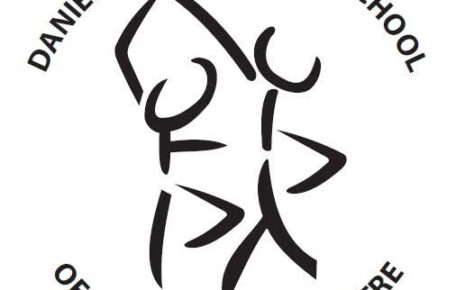
Job Opportunity: Routes In
We are recruiting for our third year of Routes In at Lincoln Arts Centre and Barbican Creative Hub, funded by Arts Council England.
Ahead of the opening of her installation Giant Jeans, as part of project Fashion Fixed, we sat down with the artist Kerry Gibson. Kerry is a textile artist living and working in Lincoln. Her business Rethread Denim aims to look holistically at the fashion industry and aims to find solutions to how we can keep our clothing, and in particular denim in the supply chain for as long as possible, and why this is important.
I love denim, it’s such a brilliant hardwearing fabric. It’s part of my life and I’ve made a living trading, upselling, and embellishing it for the last 17 years.
I first fell into selling second-hand denim when my children were young. I had always bought and sold vintage clothing but when I discovered eBay I knew I needed a product that was easy to source, photograph, store and post. Denim became this resource. My business allowed me to be a stay at home mum to my children and the joy of sourcing stock at car boot sales and thrift stores satisfied my creative instincts.
A good denim made from 100% cotton will last for years. I still have jeans from when I was in my early 20’s. Over the years I have seen first-hand how denim has changed. I usually only deal with mid to high end denim, brands such as Diesel, Levi’s, G-Star etc. I can walk around a car boot sale and tell which company the jeans are from even before I see the label, each brand has its own ‘signature’ its own weave, stich length, dye effect.
Sadly over the last 10 years most of the denim I now see at boot fairs or charity shops is of a much poorer quality. The denim is often a cotton, mixed with polyester or elastane to give it stretch. This is where the problems arise, caring for these cheaper products is much more difficult.
Try to limit the amount you wash your jeans, and wash them on a low temperature, 30 degrees is plenty. Try and use a liquid detergent (better for the environment) and if possible air dry rather than tumble dry your denim. The movement in the tumble dryer drum will degrade the fabrics, and alter the performance of the elastane.
We all love clothes, whether everyday garments or those special items, they can make us feel confident and also be our comfort blanket. Its easy to become emotionally attached to our clothes, they become our friends. Over the past decade fashion has changed and the rise of fast fashion and the industry that supports it has encouraged us to buy more and more, some items of clothing we only wear once before throwing it away.
I have done a lot of research into the world of fashion. I understand what our clothes are made from and where they come from. I’ve learnt the enormous personal connection that goes into each garment; from the cotton farmers to the seamsters to the distributors and wholesalers. And finally, the consumers and the disposers. This has completely altered the way I look at clothing, clothes as a resource that should be valued.

I made the Giant jeans using denim fabric that I could not resell or donate to charity. This might be from jeans that were damaged, fake, or mass produced and unwanted styles. I washed the jeans then took them apart, breaking the material down into a new resource that I could work with.
While at university in Nottingham I learnt how to use a laser machine to put images onto the denim and this is how I set about building the story. I did my research, I lasered the information onto the denim and built it up using a patchwork technique that I have developed.
Once I had all my pieces, I travelled down to London to work with the renowned denim designer Mohsin Sajid who helped me construct them on his professional machinery. It was a brilliant collaboration.
We are at a point in history where we are becoming aware of many things going wrong in the world, from climate change to wars, and even the cost-of-living crisis.
I see the fashion industry like a giant jigsaw puzzle, every part of the industry has a role to play, and every action has an impact on something else. If we understand the real fashion industry we learn about social, environmental, and ecological issues that affect us all. We can be educated on human rights, gender equality, consumption, and climate change.
The jeans and Project fashion fixed are simply a way of trying to raise awareness around these issues but in a fun and engaging way. I am ‘educating through creativity’ and trying to engage the younger generation and help them see that even the small decisions we make can make a big difference.
Returning to university as a mature student was a both brilliant and incredibly difficult. The educational system has changed in many ways since I first attended at 19. What I enjoyed most about my recent experience were the people I met; the friends I made and the tutors that put up with me! The academics, university staff and fellow students were inspirational, an experience I could not replace.
I returned to university because I wanted to reconnect with my creative side. As older student, and a Mum, I was more confident and pushed harder to get what I wanted from it.
I saw that the students around me were often much shyer, and having children of my own I understood many of the anxieties that young people are experiencing. I hope that Project fashion Fixed will allow a safe space for students to thrive. Project fashion Fixed is an extra-curricular project that people only get involved with if they choose to. They learn if they want to and produce the work that means something to them. I am there as the facilitator, to guide and encourage them. Last year’s project was a real success. Every student that I have contacted from last year want to be involved again this year. Even the students that have graduated and have moved on still want to play a part and continue to contribute. It’s an exciting way of working and were all looking forward to seeing what we can achieve this year.
The jeans will be exhibited as part of the ‘Unpicking the story of your clothes exhibition’ for three days, from Thursday 16th through to Saturday 18th February, this is a free exhibition and will be open to the public from 10-4pm each day. The Giant jeans exhibition will also be supported by a collection of creative work made by the students of Lincoln as part of Project fashion Fixed 2022, a project that Kerry ran last year.
More information can be found on Kerry’s Instagram page @rethread.denim

As part of Reimagining Lincolnshire, this illustrated talk celebrates lesser-known Lincolnshire women of long ago, who devoted their lives to campaigning for the rights of all women.

Celebrating 20 years of the Danielle Rawlinson School Of Dance And Theatre with fabulous performances showcasing our pupils talent and hard work. An energetic performance full of various dance styles and musical theatre.

Overlooking the hustle and bustle of Los Angeles’ Sunset Strip, Laurel Canyon hosted a community of musicians through the 1960’s and 70’s forming a hive of creativity in the age of hippies and flower power. Amongst Laurel Canyon’s residents were the likes of Neil Young, James Taylor, Carole King, Eagles, The Doors and Joni Mitchell.
Stay in touch by signing up to our mailing list
Enter your details below to subscribe to our newsletter and receive exclusive offers, event announcements, projects and news